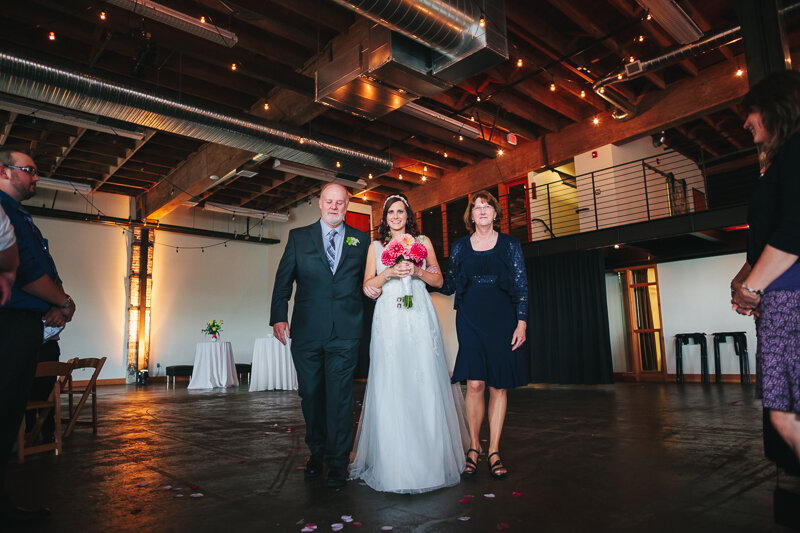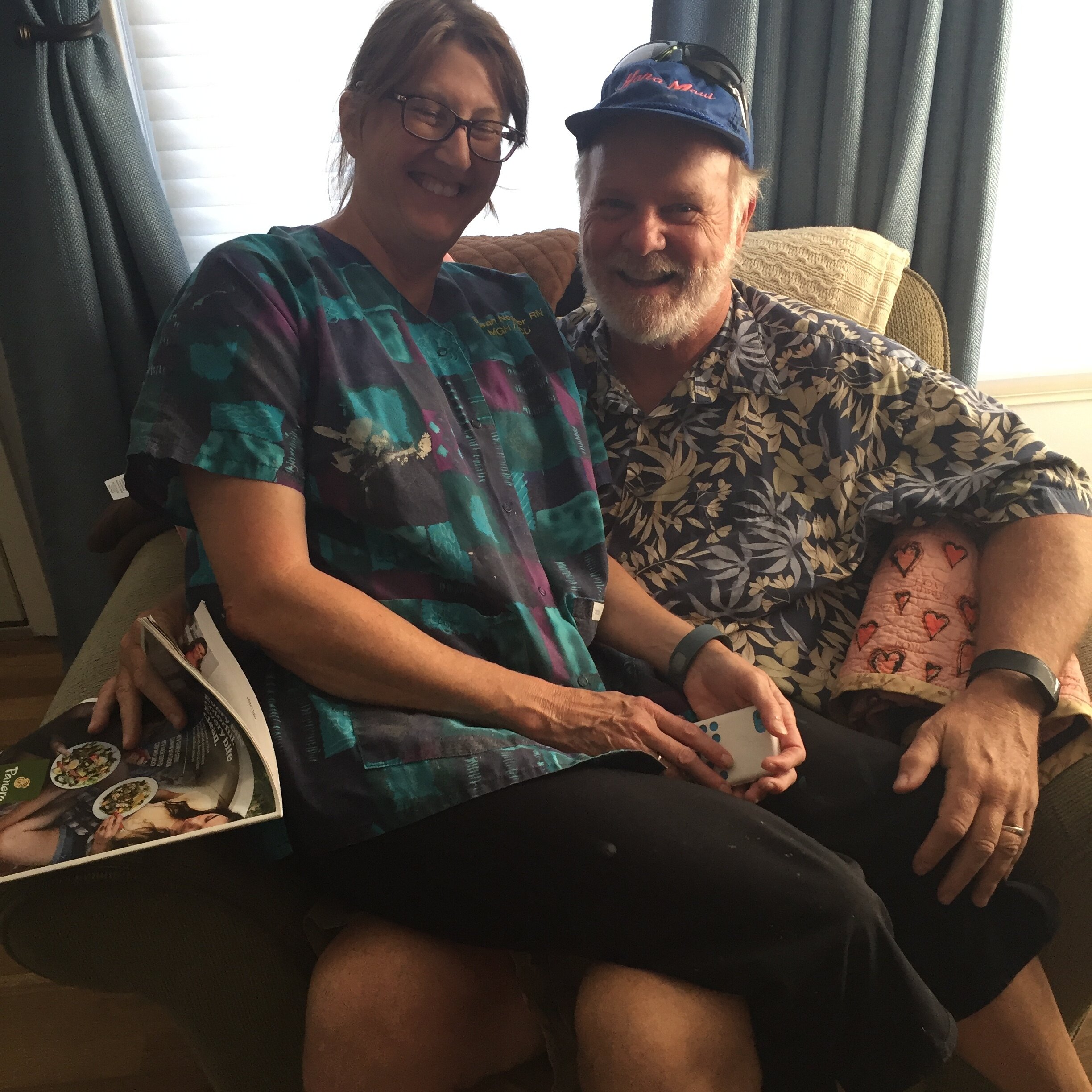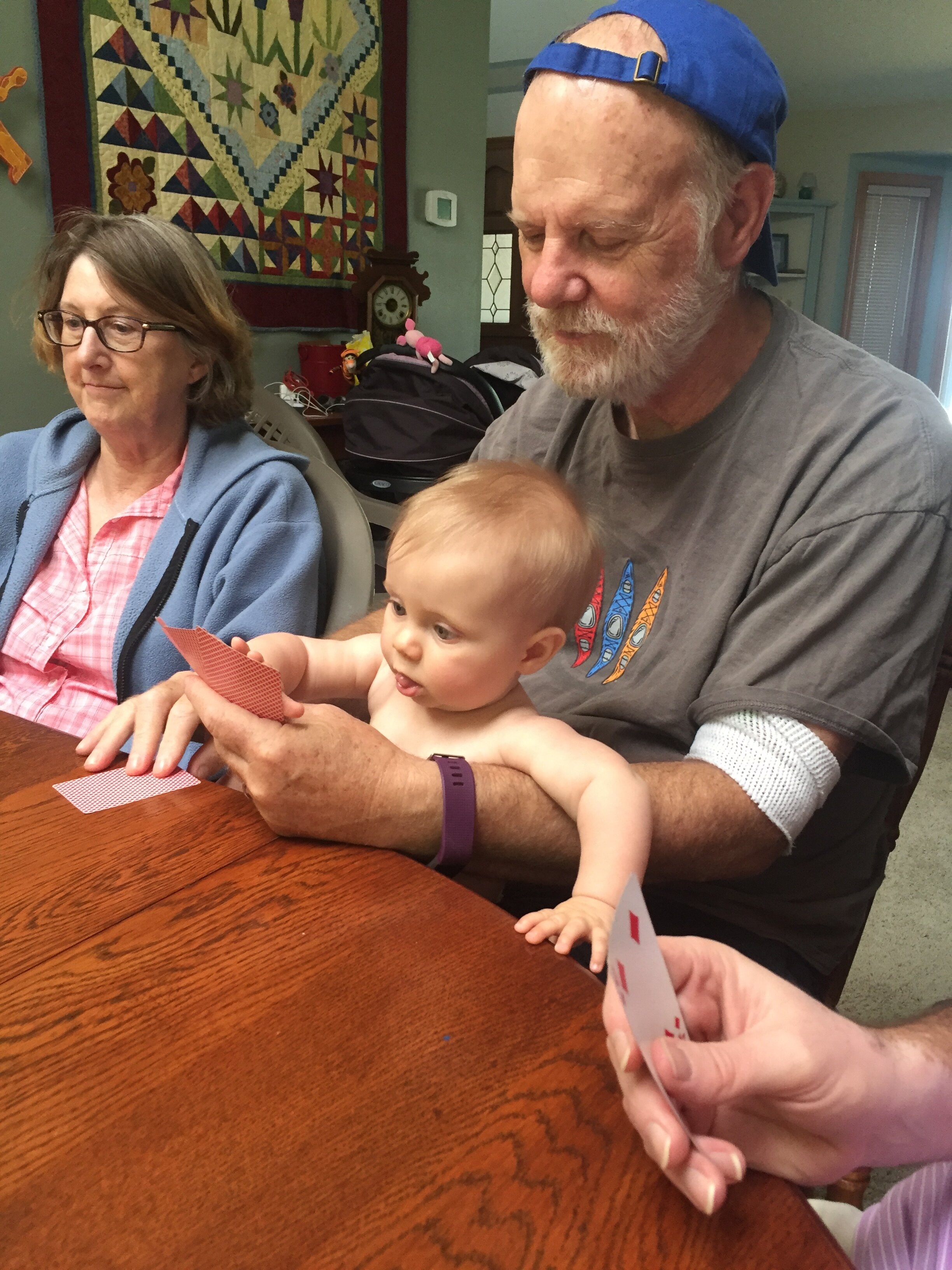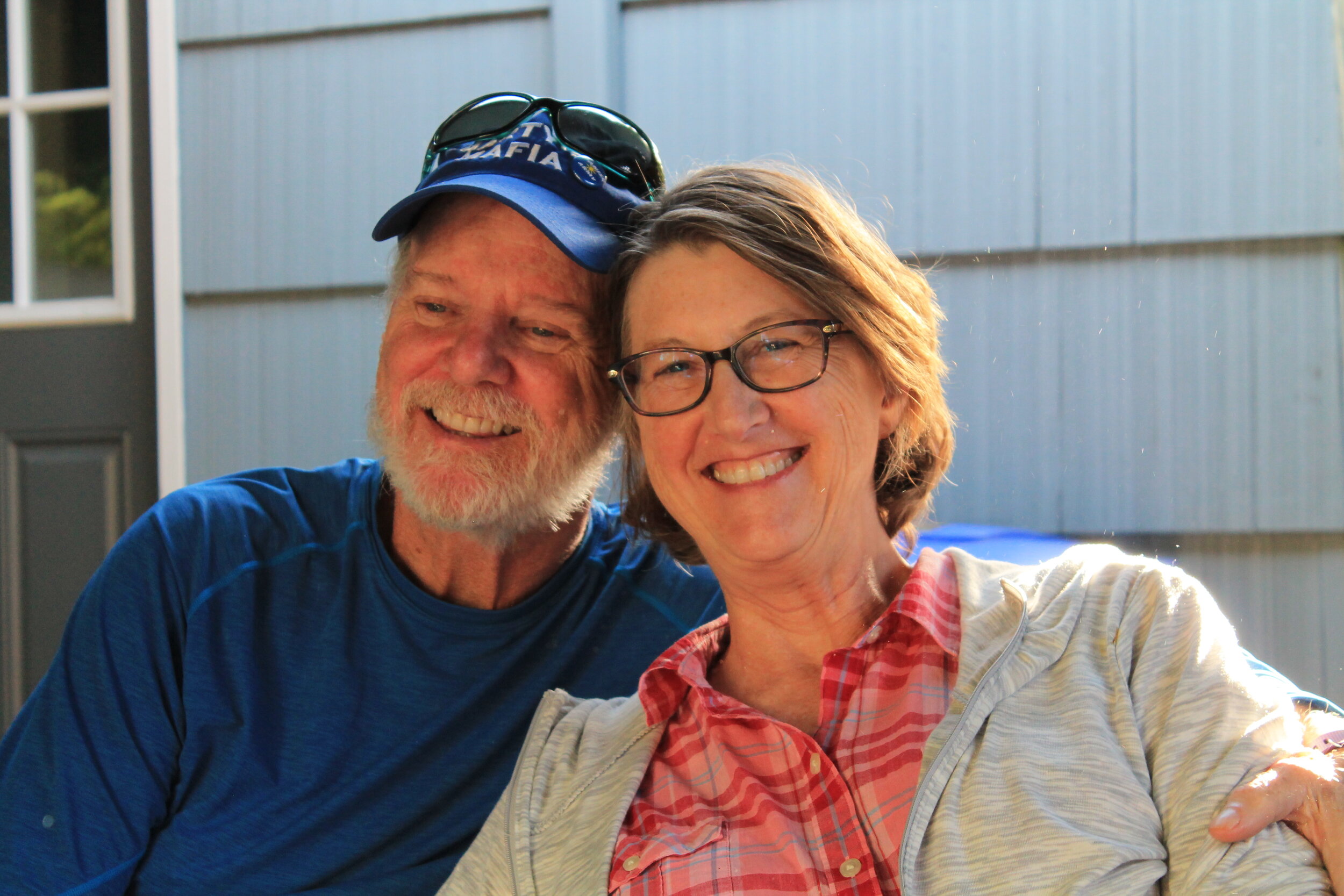By far and large, the most common question I received during the first year after my dad died was, “How’s your mom doing?” I had mentally prepared myself for the onslaught of “How are you?” questions that would come my way, but I ultimately received very few of these. I can recall a handful of interactions when someone inquired about how I was doing after my dad’s death. Everyone instead skipped immediately to asking about my mom. There seemed to be this implication that as the daughter of a dead dad, I must be a.) fine and b.) able to direct people on how best to assist my mom, who as the wife of a dead husband was clearly a.) not fine and b.) needed me to act as her spokesperson.
I wasn’t really in the position to act as anyone’s spokesperson and was always incredibly caught off guard by this question, no matter how many times I received it. I found myself having a very bitter reaction to it and secretly wanting to snap, “How do you think she’s doing?” to everyone who asked. I became particularly triggered by the predictability of the script we all used to navigate this particular conversation over and over again. Inevitably I would respond, “She is hanging in there. She is a very strong person,” to anyone who asked and the person would immediately respond with, “Is she keeping busy?” because as we all know, the only possible way to navigate grief is to stay endlessly distracted. “Yup, she’s staying busy,” I’d say, and then recite some of her weekly activities as if to prove that obviously anyone who volunteers at a food pantry every Tuesday is fine despite losing her partner of 47 years, just as obviously I am fine after losing my dad and don’t even need to be asked about it.
The real answer to the “How are you?” question in grief is Not Okay But As Okay As Possible or Not Fine But Okay or maybe Not Okay But Fine or Kinda Managing or Barely Hanging On or Sorta Surviving or What Even Is Okay or A Little Different With Each Passing Moment or sometimes it’s actually just Hard and None of Your Business.
But of course these aren’t the responses we offer when someone asks. We talk instead about staying busy. I became so sick of the predictability that I would fend off anyone asking “How’s your mom doing?” by skipping right to the next part and saying “She’s keeping busy,” which truly seemed to be all that anyone wanted to hear.
It was this strange, repetitive cycle: Me being asked about my mom without first being asked about myself, me listing her schedule as proof of her okay-ness in the face of grief, and the conversation concluding with me feeling uncomfortable about a.) being asked to push aside my own grief, b.) being asked to speak for someone else, and c.) already knowing the answer the person wanted to hear and supplying it accordingly. Oh, she’s keeping busy? Wonderful. Good for her. Conversation over. This happened over and over again during my first year of grief — and then it promptly stopped because, as we all know, grief ends after Year One.
I don’t know if I have any great takeaways here, other than that if you’re going to ask a griever how another griever is doing, it might be nice to inquire about the griever standing in front of you as well, rather than assuming she’s in a stable enough position to put her own emotions and feelings to the side and speak for someone else. And if you do inquire how someone is doing, know that the whole “Staying busy?” response is a tired one. A person can be fine without being busy and a person can be busy without being fine and I don’t know why we insist on equating the two. If you’re gong to ask how a griever is doing just to ask if they’re staying busy, you’re not going to find out anything about the griever at all. And if you’re not going to find anything out, what was the point of asking the question?
In grief and with love,
KrissyMick
Photo Credits, Top to Bottom: Kristen Forbes, Jason Quigley, Kristen Forbes, Kristen Forbes, Jane Mellow, Jessica Mueller






